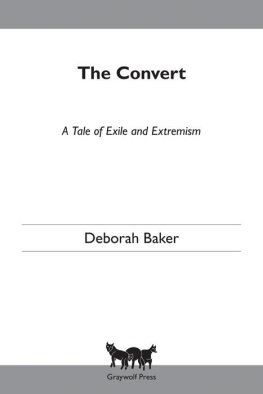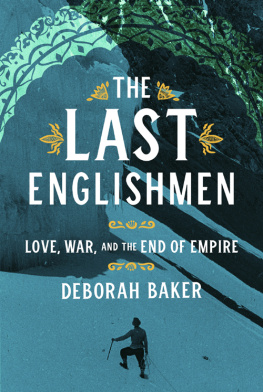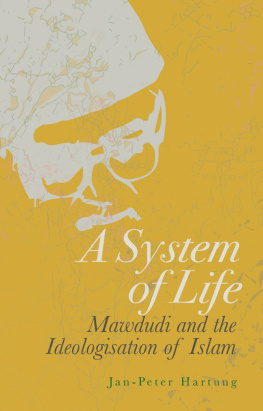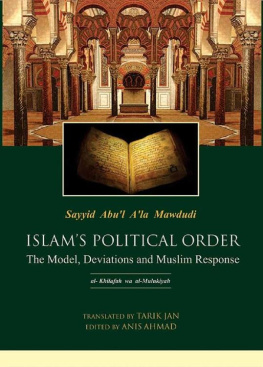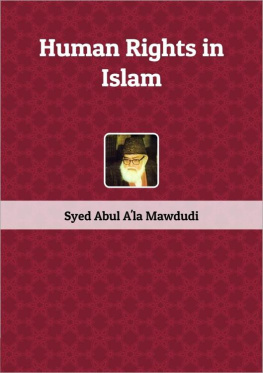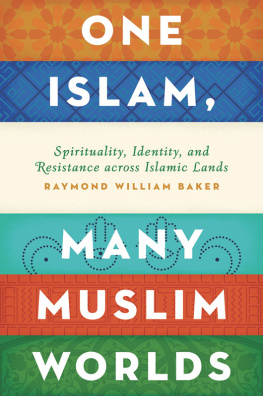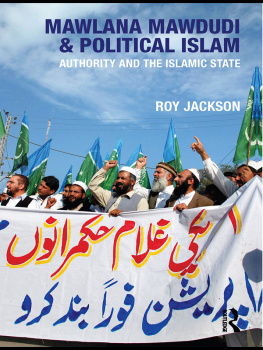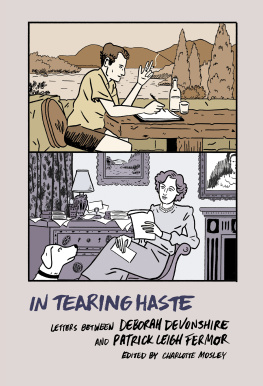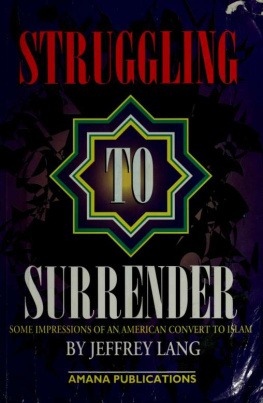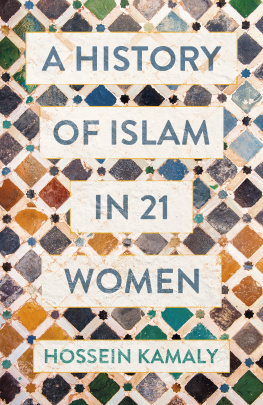THE CONVERT A TALE OF EXILE AND EXTREMISM
Deborah Baker
Graywolf Press
Copyright 2011 by Deborah Baker
This publication is made possible by funding provided in part by a grant from the Minnesota State Arts Board, through an appropriation by the Minnesota State Legislature, a grant from the National Endowment for the Arts, and private funders. Significant support has also been provided by Target; the McKnight Foundation; and other generous contributions from foundations, corporations, and individuals. To these organizations and individuals we offer our heartfelt thanks.

Published by Graywolf Press
250 Third Avenue North, Suite 600
Minneapolis, Minnesota 55401
All rights reserved.
www.graywolfpress.org
Published in the United States of America
Printed in Canada
ISBN 978-1-55597-582-1
Ebook ISBN 978-1-55597-028-4
2 4 6 8 9 7 5 3 1
First Graywolf Printing, 2011
Library of Congress Control Number: 2011920617
Cover design: Kimberly Glyder Design
Cover photos: Maryam Jameelah, 1962: Manuscripts and Archives Division, The New York Public Library, Astor, Lenox and Tilden Foundations (top) / George Marks, Retrofile RF, Getty Images (bottom)
Interior photos: Margaret Marcus, self-portrait, 1956: Manuscripts and Archives Division, The New York Public Library, Astor, Lenox and Tilden Foundations; Herbert and Myra Marcus, undated, from Quest for the Truth; Maryam Jameelah, 1962: Manuscripts and Archives Division, The New York Public Library, Astor, Lenox and Tilden Foundations
FOR MY PARENTS
Contents
If a man passes a door which has no curtain and is not shut
and looks in, he has committed no sin.
Mishkat al-Masabih
Whoever undertakes to write a biography binds himself to lying,
to concealment, to hypocrisy, to flummery.
Sigmund Freud

Maryam Jameelah Papers, 2.5 linear feet (9 boxes). Gift of Maryam Jameelah, April 1962, with subsequent additions. The Maryam Jameelah Papers include the correspondence, fiction, art and writings of Maryam Jameelah, ne Margaret Marcus, an American Jew who converted to Islam. Her papers tell of her troubled youth, her sympathy for displaced Palestinians after the formation of modern Israel, her relationship with Maulana Sayyid Abul Ala Maudoodi, and the decision to leave America and spend the rest of her life in Pakistan.
Finding aid, Manuscripts and Archives Division, The New York Public Library,
Astor, Lenox and Tilden Foundations.

CHAPTER 1

al-Hijrah The Escape
5-A Zaildar Park
Icchra
PAKISTAN
April 18, 1962
Dear Maryam Jameelah,
Asalaam-o-aleikum wa Rahmatullah!
I am glad to know you have accepted my counsel and are ready to come to Pakistan. I pray to Allah that He may guide you to what is right and in your best interest.
I think it is advisable to mention a few things. As you must already know, our way of life and social conditions are vastly different from those in America. We lack many facilities and amenities that Americans take for granted. Therefore, the first months here will certainly prove fatiguing and taxing upon your nerves. Unless you have patience and are resolutely determined to mold your life according to ours, to live Lahore spanand die among your Muslim brethren, you might find it extremely difficult to reconcile yourself to our ways. Although I will try my best to look after your needs and make things easier, your steadfast cooperation is essential.
Two of my daughters are near to you in age. One is studying for an MA in English and the other a BA in economics. I hope they will make friends with you, teach you Urdu, and, in exchange, learn from you the enthusiasm of a new convert. My wife does not know English. Initially, this may hinder your intimacy with her but I hope you will pick up enough Urdu within two or three months to enable you to communicate. After you have learned Urdu, it will be relatively easy for you to learn Arabic, because these languages share vocabularies. In due course, I will also try to arrange for an Arabic teacher.
As regards marriage, I will not pressure you, but should you decide to marry, I will try to help you choose a suitable life partner. Naturally you will want to be married to a youth who lives as a good Pakistani Muslim. If you choose not to marry, I am prepared to welcome you forever as a member of my family. I am inviting you to share my hospitality in the spirit with which the early Muslim inhabitants of Medina extended their invitation to their forlorn brethren outside of Medina and I wish you to respond with a similar spirit of migration, thinking that bonds of faith are firmer and stronger than relationships of flesh and blood.
There is still another reason why you should postpone any decision about marriage. When you arrive, my wife will train you in how a Pakistani Muslim wife runs her home and manages her household affairs. This knowledge will stand you in good stead when you are facing married life. For such a marital relationship to achieve success, it is essential to learn the social etiquette of Muslim families.
When you reach Lahore, daytime temperatures will average well over 100 degrees Fahrenheit. Our houses are not air-conditioned but we do use electric fans. Eventually you will become accustomed to our tropical seasons but you must be prepared to bear the first onslaught of this extreme climate.
I am writing a separate letter to your parents. I advise you to introduce me to them yourself and show them some of my letters so they may be able to grasp fully the background of my present letter to them.
Your brother in Islam,
ABUL ALA
Larchmont Acres Apartments, Apt 223-C
Mamaroneck, NY
USA
May 2, 1962
Dear Mr. Mawdoodi,
I am grateful for your kind letter of April 18th, extending to my daughter, Margaret, an invitation to live in your home. My wife and I are deeply moved by your gracious offer of hospitality.
Since embracing Islam, particularly as an ardent convert, it seems that living in our society presents practical difficulties. Margaret is anxious to accept your invitation, and as her parents, we are amenable, although it means going to live in a distant land. Particularly in view of the enthusiasm she has evinced, we are hopeful it would give her the opportunity for a happy and meaningful existence.
[Going to] a country with a very different culture will surely require a degree of forbearance during a period of adjustment. With the sympathy and understanding indicated in your letters, combined with Margarets ardor, I am confident that her entrance into your family life will be successful.
I was pleased to note in your letter to Margaret the advice regarding change of citizenship and marriage. It is my paternal wish that she take irrevocable steps only after a reasonable period of residence.
She goes to your country with our full consent and especially as [she is] a person of fine character we shall maintain a continuous interest in her welfare. Therefore, please feel at liberty to write me at any time.

